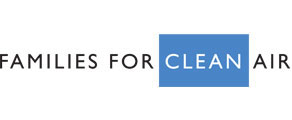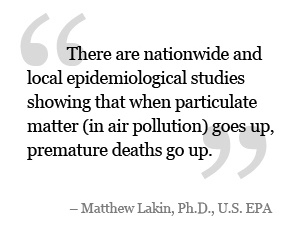A Report from the BAAQMD Board Meeting
The Bay Area Air Quality Management District (BAAQMD) Board of Directors concluded that the region-wide approach to addressing wood smoke pollution is not solving the problem in neighborhoods most impacted by wood smoke, despite region-wide improvement in air quality this winter. At their April 6, 2011 meeting, the board agreed that changes are needed to reduce wood smoke pollution further. At Families for Clean Air (FCA), our hope is that this will translate into new outreach programs in impacted neighborhoods and more action from the BAAQMD enforcement division.
FCA presented a list of recommendations to the board, including hiring more inspectors to patrol neighborhoods on evenings and weekends when most wood burning occurs, vigorously enforcing the “opacity” rule, and installing air monitors in wood smoke-impacted neighborhoods. Although BAAQMD monitors showed only one air-quality exceedance day region-wide during the winter season, we previously presented data showing that the air quality in one neighborhood exceeded National Ambient Air Quality standards for particulate matter several times throughout the winter. There was no response to this pilot air quality monitoring study, and a deafening silence on the issue of more air quality monitoring in wood smoke-affected areas.
FCA also hoped to hear responses from the Enforcement Division regarding evidence we presented to the Board on March 16th. This evidence suggested that several permanent exemptions, which allow households to burn on Spare The Air days, had been granted under false pretenses. Despite pointed questioning from Board members, Enforcement offered no explanation other than that the Enforcement program was “only three years old” and still evolving.
At the March 16th, meeting a number of Board members, appeared frustrated at the meager number of wood burning citations issued (2), compared to the number of complaints sent in (1,373), given that the number of people who go to the trouble to report a violation represent only a small percentage of people affected by wood smoke. Last week, while some Board members pushed the Enforcement Division to be more aggressive about going after violators, the discussion mostly focused on finding other ways to address the problem. Some of the ideas we liked: Outreach staff meeting with PTA groups to discuss the negative health effects of wood smoke, especially on children, and reporting smoke complaint information to local governments to work cooperatively to enforce wood burning regulations.




